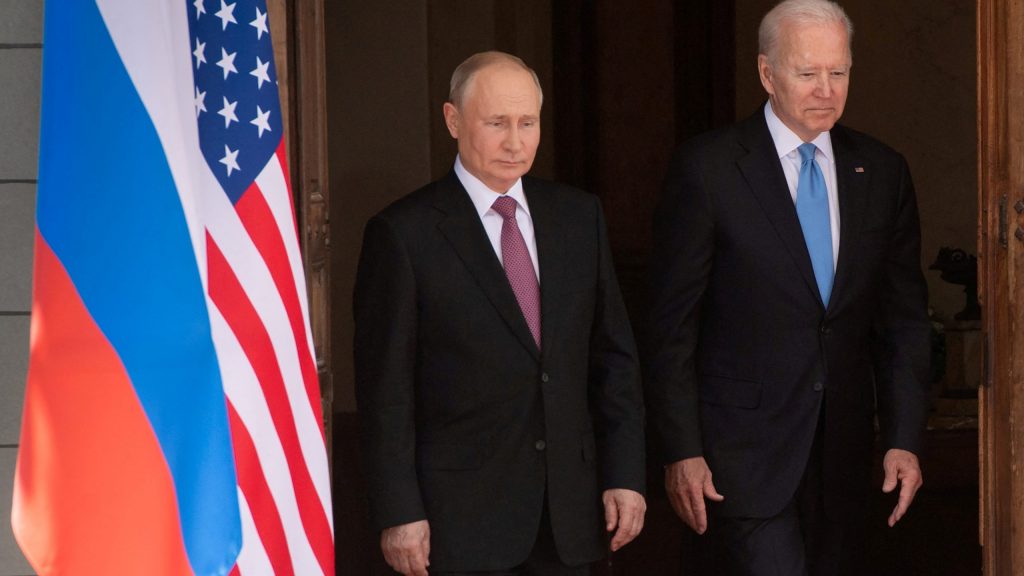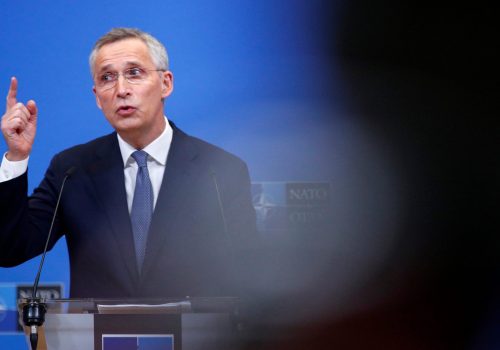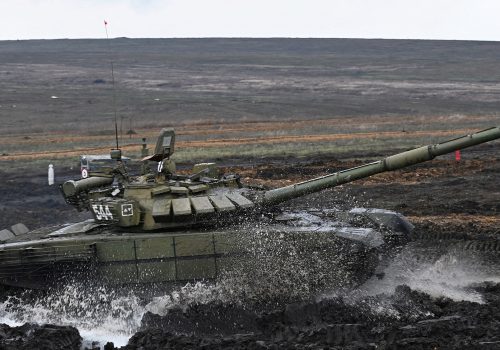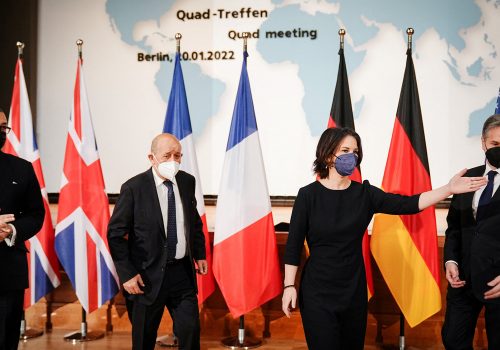For months, the Biden administration and its European partners have tried to end President Vladimir Putin’s military aggression against Ukraine through a combination of diplomacy and the threat of economic sanctions. This approach has failed, and instead Russia has escalated by moving more weaponry toward the Ukrainian border and threatening to expand the confrontation by deploying military forces to Cuba and Venezuela.
The Biden administration should deal with this Kremlin-manufactured crisis with the bipartisan strategy that successfully won the Cold War: deterrence (otherwise knowns as “peace through strength”).
After he caused a stir in Kyiv and elsewhere this week by suggesting “a minor incursion” by Russia into Ukraine might not provoke a US response, US President Joe Biden could do far more than simply walk back his statement (as he did shortly after). He should tell Putin that if he fails to de-escalate and send his military forces back to their bases in the next seven days, the United States will do exactly what the Russian leader is most afraid of: push for more US forces in Europe and more NATO enlargement.
Informed by my experience inside the US Departments of Defense and State, I propose that Biden take the following steps to regain the initiative:
- Increase US forces in Europe. This should begin by restoring one of the two Brigade Combat Teams (BCTs) that were withdrawn from the continent in 2012 (the other BCT was returned to Europe on a rotational basis after Russia invaded Ukraine in 2014). The US Army describes these brigades as “the Army’s primary armored force,” and restoring them to Europe will help bolster NATO defenses and strengthen deterrence against Russia.
- Increase defensive exercises in Europe. Because the Kremlin also demanded fewer NATO exercises, Biden should let Putin know that unless Russia moves its forces away from Ukraine’s borders, Biden will deliver more (and larger) US and NATO exercises in Europe—and specifically more in NATO’s easternmost members. Putin needs to be shown that his aggressive behavior will produce the results he most fears, not the rewards he most desires.
- Strongly advocate for NATO to add more multinational forces along its eastern flank. Increasing the size of NATO’s four enhanced Forward Presence (eFP) units—each numbering around one thousand troops and stationed in Estonia, Latvia, Lithuania, and Poland—every time Putin threatens to invade another of Russia’s neighbors will send the right message. But the United States cannot do this on its own; it must wield its leadership to build unanimous support (just as it did for the existing eFP units). In the meantime, nothing prevents the United States from increasing its forces on a bilateral basis with welcoming allies. For example, Biden should move forward with basing the new BCT in Poland.
- Advocate for NATO to begin a Membership Action Plan (MAP) with Georgia. Membership decisions need to be unanimous, so this is unlikely to lead to membership for Georgia immediately. But it’s much clearer than the current US policy of politely telling Georgia, “Someday, we’ll push for it”—and certainly something Putin doesn’t want to see. Currently, only a handful of NATO countries in Central Europe are pushing for Georgian membership. But if the Biden administration clearly advocated for membership for Georgia, major allies like the United Kingdom might soon join in. That won’t guarantee approval from all twenty-nine other members, but as Winston Churchill said in 1942, it would mean “the end of the beginning,” and start a new phase of robust US diplomacy.
This new US approach should also include some proportional good news for Putin: If he withdraws Russian forces from the Ukrainian border within seven days, Biden should offer to invite him to the next NATO Summit for a special heads of state summit of the NATO-Russia Council. This might give Putin a face-saving political victory—but one that doesn’t harm Ukraine, and which also reinforces the value of diplomacy.
Jorge Benitez is a nonresident senior fellow at the Atlantic Council’s Scowcroft Center for Strategy and Security.
Further reading
Tue, Jan 18, 2022
No consensus? No problem. Why NATO is still effective.
New Atlanticist By Christopher Skaluba, Conor Rodihan
Don't believe what you hear: NATO can still contribute invaluably to Ukraine’s sovereignty.
Thu, Jan 20, 2022
Will Russia make a military move against Ukraine? Follow these clues.
Experts react By
Our military fellows from the US Army, Navy, Air Force, and Marine Corps give a sense of the movements from Russia that they're tracking most closely.
Thu, Jan 20, 2022
How Europe can reclaim its voice in the Russia crisis
New Atlanticist By
“There will be no peace in Europe if the States are reconstituted on the basis of national sovereignty.” This warning by Jean Monnet sums up the crisis Europe is currently experiencing nearly eighty years later.
Image: US President Joe Biden and Russian President Vladimir Putin meet in Geneva, Switzerland, on June 16, 2021. Photo by Saul Loeb/Pool via REUTERS/File Photo



